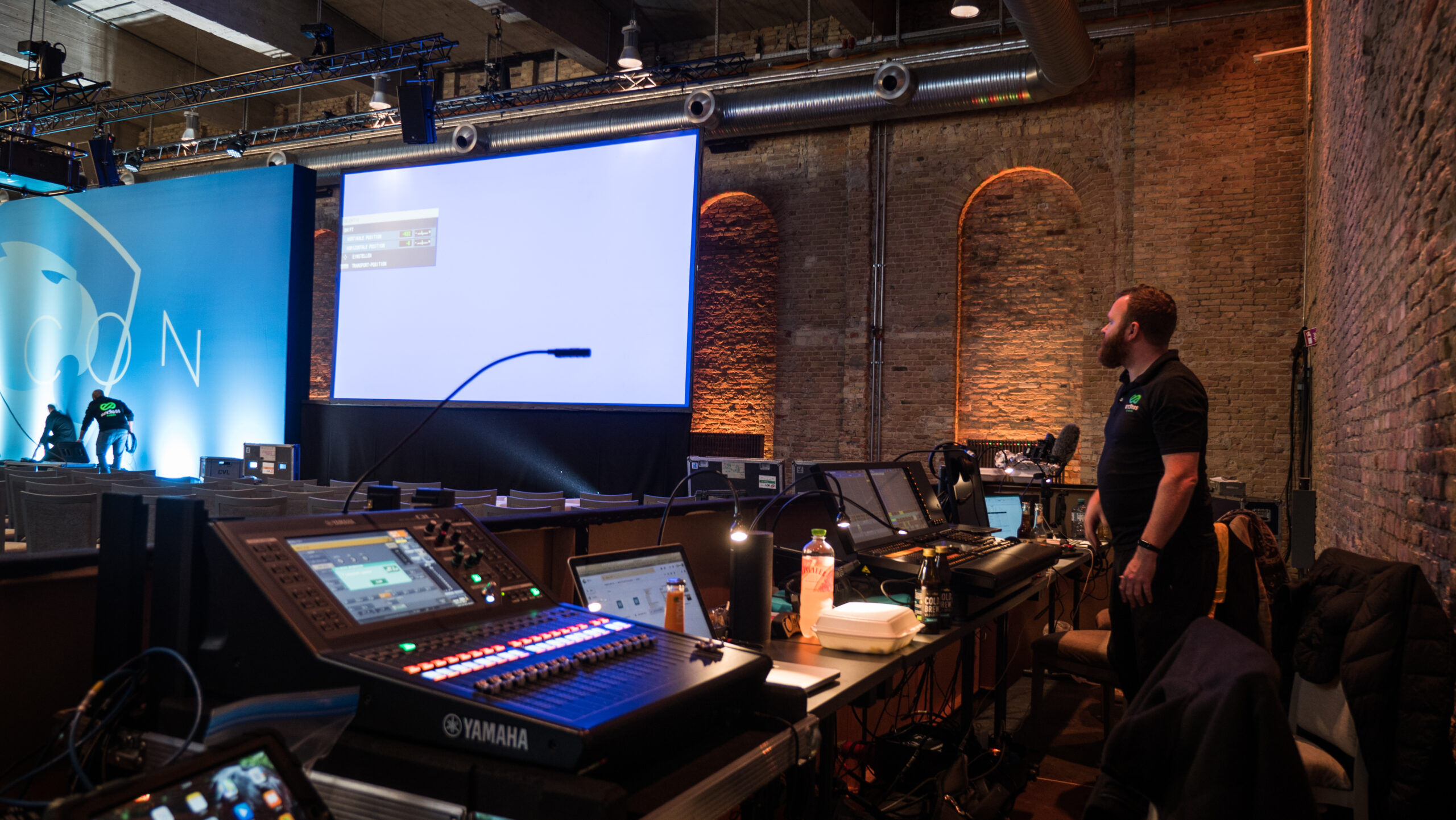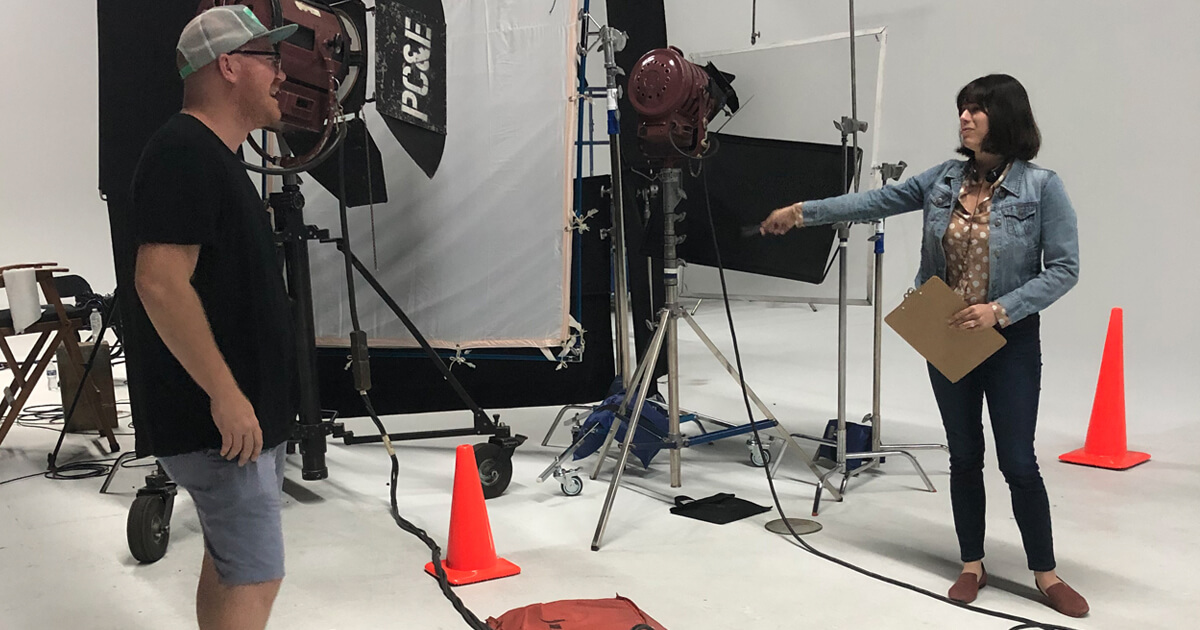Just How Event Production Works: A Comprehensive Check Out the Refine
Event production is a complicated and organized process that requires cautious preparation and implementation. It begins with developing clear purposes and understanding the target audience. Each action, from budgeting to venue option, plays a crucial function in ensuring success. As the process unfolds, various elements have to line up seamlessly. The nuances of this detailed procedure commonly go undetected. What are the essential stages that add to a remarkable event?

The First Preparation Phase
When starting on event production, cautious planning is important to assure an effective end result. The initial drawing board serves as the foundation for all subsequent efforts. During this phase, event producers must define the event's purpose and objectives clearly. Identifying the target audience helps tailor the experience and messaging, assuring relevance and engagement.Producers must also take into consideration the event layout, whether it be in-person, virtual, or crossbreed, as this will certainly affect different logistical aspects. Choosing a suitable date and place is critical, as it impacts accessibility and availability.Furthermore, assembling a reputable team is fundamental for separating duties and simplifying communication. Establishing a timeline with turning points assurances all jobs are finished on schedule. This stage involves comprehensive research, consisting of determining potential challenges and developing methods to reduce threats. Inevitably, a well-structured preliminary planning stage sets the tone for an effective event production journey.

Budgeting and Source Allowance
In event production, efficient budgeting and resource allocation are essential for success - event production charlotte. Establishing economic specifications establishes the foundation for all subsequent decisions, while source circulation methods assure that every element of the event is adequately sustained. With each other, these aspects assist maintain control over expenses and maximize using readily available resources
Establishing Financial Parameters
Developing financial criteria is vital to the success of any type of event production, as it sets the structure for efficient budgeting and source allocation. This process begins with specifying the total budget plan, which incorporates all facets of the event, including location prices, catering, and advertising. By recognizing available funds, event coordinators can focus on expenses and allot resources accordingly. On top of that, it is vital to carry out thorough marketing research to prepare for possible prices and identify funding sources, such as sponsorships or ticket sales. Establishing clear financial criteria also aids in risk management, allowing coordinators to reserve contingency funds for unanticipated costs. Inevitably, a distinct spending plan offers as a roadmap, assisting the event production group in the direction of accomplishing their goals while preserving monetary control.
Resource Distribution Techniques
Effective resource circulation approaches are essential for optimizing the effect of an occasion while sticking to spending plan restraints. Effective event production needs a precise approach to budgeting and resource appropriation. Organizers have to focus on vital elements such as location, food catering, and modern technology, making sure that funds are designated to locations that enhance guest experience. A comprehensive spending plan needs to outline expected expenditures and determine areas for prospective price savings, such as negotiating with suppliers or discovering sponsorship opportunities. Furthermore, tracking expenditures throughout the preparation procedure aids protect against overspending. By using calculated resource circulation, event manufacturers can supply a remarkable experience while preserving fiscal duty, ultimately adding to the general success of the event.
Location Selection and Logistics
Picking the best venue is important to the success of any event, as it establishes the phase for the overall experience. Venue selection involves assessing various aspects, including capability, access, and place. Planners must take into consideration the target market and the nature of the event, making sure the location straightens with the event's goals.Logistics play a significant function in this process, entailing arrangements for seating, audiovisual equipment, and catering solutions. A well-chosen venue ought to promote smooth flow for guests and personnel, improving engagement.Additionally, assessing possible venues for facilities like vehicle parking, washrooms, and fire escape is essential for safety and security and ease. The timeline for securing the location is also vital, as prominent areas may book swiftly - event production charlotte. Thorough planning and timely execution can eventually contribute to a seamless event experience, making place option and logistics essential components of effective event production.
Innovative Concept Development
While the venue establishes the physical phase, creative principle advancement forms the event's identification and story. This process begins with identifying the event's purpose and target audience, enabling event manufacturers to create an engaging style that reverberates with participants. Conceptualizing sessions commonly consist of varied perspectives, promoting innovative ideas that line up with the event's goals.Once a motif is established, aesthetic aspects such as color combinations, signage, and decoration are designed to boost the overall ambience. Narration methods may likewise be integrated to produce an appealing journey for individuals, ensuring a memorable experience. Additionally, considerations concerning entertainment, tasks, and interactive parts are lined up with the chosen idea, reinforcing the motif throughout the event.Ultimately, reliable creative principle development assurances that every aspect of the event works cohesively, leaving a lasting impression on participants and fulfilling the event's goals. This foundational work prepares for succeeding preparation and execution phases.
Teaming up With Vendors and Providers
Effective event production depends upon effective collaboration with suppliers and providers. Picking trustworthy partners, bargaining contracts successfully, and guaranteeing timely shipments are essential steps in this process. Each of these variables contributes considerably to the overall success and smooth implementation of an event.
Picking Reliable Partners
Just how can event planners ensure a seamless production experience? Selecting trusted partners is important in attaining this objective. Event organizers need to conduct complete research to determine suppliers and providers with a proven record of excellence. This includes examining recommendations, reviewing profiles, and evaluating consumer feedback. Planners must focus on companions that show expertise, timely communication, and a readiness to collaborate. Building strong partnerships fosters depend on and enables fast problem-solving during the event. Furthermore, it is useful to choose neighborhood vendors that comprehend the venue and regional logistics. Inevitably, an effective event hinges on the harmony in between coordinators and their companions, guaranteeing that every element of production runs smoothly and effectively.
Bargaining Agreements Effectively
Effective arrangement of contracts is a crucial action in the partnership in between event planners and their suppliers and suppliers. This process involves clear communication of assumptions, deliverables, and timelines. Coordinators must carry out detailed research study on market rates and sector criteria to develop a standard for settlements. It is essential to produce a joint ambience, motivating open dialogue regarding terms, pricing, and prospective contingencies. Planners need to also focus on understanding the supplier's capabilities and constraints to straighten their needs efficiently. Adaptability can result in equally useful agreements, promoting long-term connections. Crafting well-defined contracts that consist of specific efficiency metrics can aid guarantee liability, ultimately causing successful event execution and satisfaction for all celebrations entailed.
Ensuring Timely Distributions
Prompt deliveries are necessary for the smooth implementation of any event, calling for persistent cooperation between coordinators and their suppliers and distributors. Effective interaction is important, as it assists develop clear assumptions regarding delivery routines, quantities, and certain needs. Planners typically develop thorough timelines to outline crucial turning points, making sure all celebrations continue to be straightened throughout the procedure. Normal check-ins with suppliers can aid identify potential hold-ups early, allowing for proactive solutions. Additionally, building solid partnerships with trusted suppliers fosters Your Domain Name trust and accountability, which can cause far better solution and prioritization. By focusing on these collective efforts, planners can decrease disturbances, therefore boosting the general effectiveness of event production and guaranteeing that all required materials and solutions show up as prepared.
Marketing and Promo Approaches
While arranging an event, the success of marketing and promo techniques can greatly affect attendance and interaction. Efficient techniques often consist of a combination of electronic advertising, typical marketing, and grassroots outreach. Making use of social media systems permits real-time communication and targeted advertising, getting to specific demographics successfully. Email marketing campaigns can better engage prospective attendees with individualized web content and reminders.Collaborations with influencers or market leaders can additionally enhance reputation and widen reach. Producing interesting content, such as videos or blogs, aids to produce buzz and suffer interest leading up to the event. Additionally, leveraging early-bird price cuts and exclusive rewards can incentivize ticket purchases.Promoting through standard networks, such as posters or local media, continues to be pertinent, particularly in community-focused occasions. An extensive strategy that incorporates numerous approaches warranties optimum visibility and involvement, inevitably adding check my site to the event's success and the production of a memorable experience for participants.
On-Site Implementation and Administration
On-site implementation and management are important elements that establish the overall success of an event. Reliable coordination throughout the event guarantees that all aspects straighten with the planned program. Event managers manage logistics, consisting of supplier coordination, devices configuration, and visitor services. Keeping track of timelines and attending to any type of unexpected issues are essential for keeping a smooth experience.The personnel plays a considerable function, as qualified personnel are responsible for different jobs such as enrollment, details circulation, and technical support. Interaction amongst staff member is vital; it promotes a collaborative environment and enables fast resolution of challenges.Additionally, security protocols have to be stuck to, protecting the well-being of all participants. Post-event examinations are also component of on-site administration, offering understandings for future renovations. By focusing on these aspects, event manufacturers can create remarkable experiences that satisfy or go beyond guest expectations while attaining the event's goals.
Regularly Asked Concerns
How Do I Select the Right Event Theme?
Picking the best event motif includes taking into consideration the target market, event purpose, and location. Researching present fads and gathering input from stakeholders can additionally inspire imaginative concepts that resonate and develop an unforgettable experience.

What Prevail Blunders in Event Production?
Usual blunders in event production commonly include inadequate preparation, inadequate communication among group participants, budget mismanagement, neglecting to consider the target market's requirements, and stopping working to carry out a complete post-event examination for future enhancements.
How Can I Gauge Event Success?
To determine event success, one can analyze participant fulfillment, interaction degrees, budget plan adherence, and post-event responses. Trick performance indications, such as ticket sales and social networks interactions, additionally offer valuable understandings into total efficiency.
What Should I Do if It Moistens the Event Day?
In the event of moisten the day, the coordinator should carry out contingency strategies, such as securing outdoors tents or moving tasks indoors. Interaction with attendees regarding Bonuses changes is necessary to guarantee a smooth experience regardless of weather difficulties.
How Can I Make Sure Participant Interaction Throughout the Event?
